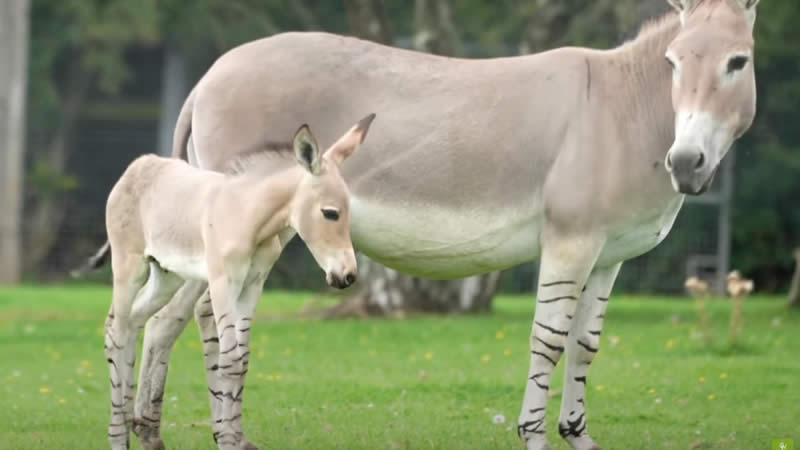
One of Earth’s Rarest Mammals Born in the UK
Share0
Marwell Zoo’s dedicated keepers were filled with elation this week with the birth of an African wild ass, one of the world’s most endangered mammals. With fewer than 200 of these magnificent creatures left in their native habitats, this birth represents a significant win for conservation.
Originally from regions in Eritrea, Ethiopia, and Somalia, the African wild asses face natural predators like African lions and Ethiopian wolves. Compounding their vulnerability, humans have historically hunted them, leading to their dwindling numbers in the wild.
The newborn, which arrived on 20th August, is in good health and is currently bonding with its mother, Nadifa, in the paddock near Okapi Playground. Nadifa, herself a Marwell-born in 2007, now celebrates her third offspring.
Meanwhile, the father, Lars, awaits in a neighboring enclosure, marking his fifth time being a dad. Though the young male foal remains unnamed, his significance in the continuation of Marwell’s conservation efforts for this critically endangered species, ongoing since 1993, cannot be overstated.
Senior animal keeper, Darren Ives, shared the team’s enthusiasm, saying, “It’s been a year-long anticipation for this foal, making it even more momentous since the last African wild ass birth here was in 2020. The lively foal, with his playful ‘zoomies’ around the paddock, has also piqued the interest of the neighboring addax, another critically endangered species.”
Fun Facts about African Wild Asses:
- Their groups are sometimes called a coffle.
- A female is known as a jenny or jennet, and a male is termed a jack or jackass.
- Remarkably, they can go up to three days without water.
- Equipped with sharp incisor teeth and robust hooves, they can consume tougher food.
- The enduring bond they form is typically with their offspring.
- Living in small groups, a female usually births one foal biennially.
- They belong to the horse family, Equidae, and are believed to be the ancestors of domestic donkeys.
- Their unique physical features include a short, smooth grey coat, large ears, a dorsal stripe, an upright mane, and distinct black stripes on their legs.
The conservation charity, Marwell Wildlife, oversees Marwell Zoo. Learn more about their global conservation initiatives at www.marwell.org.uk.
